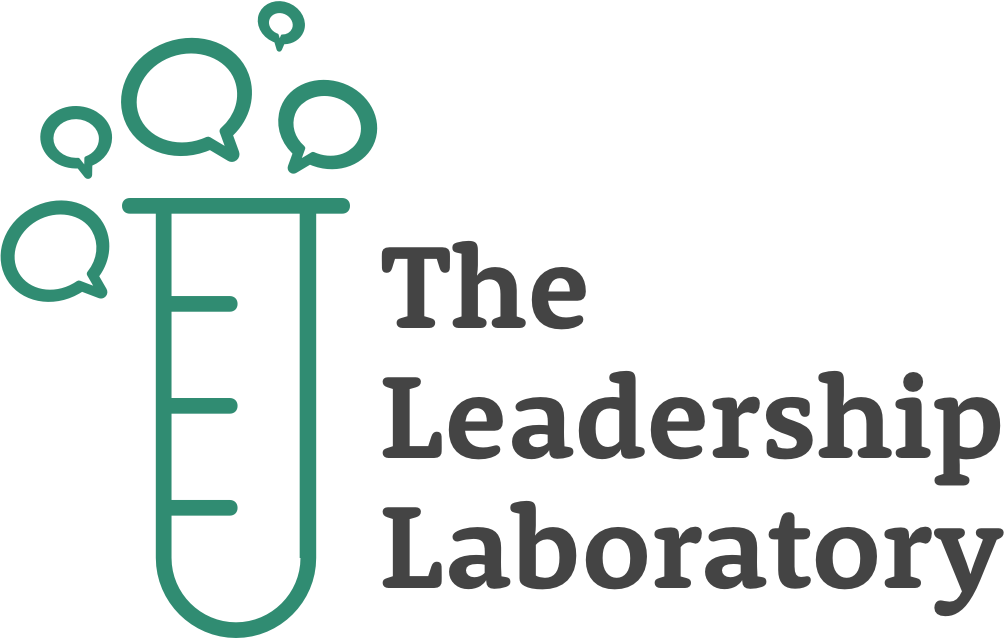Written by Jacob Goldstein — Executive Director
Interested in workshops on this topic for you and your team? Visit the Leadership + Management page for recommended interactive learning experiences from The Leadership Laboratory for emerging and established leaders in your organization.
What’s the wackiest rumor you heard around your office? I’ve heard of promotions that never came true, potential company acquisitions that never happened, and lay-offs that never occurred. In both our personal and professional lives, it’s easy to get sucked into the rumor mill, yet it’s important to clarify early on whether or not the information that we have can be fully trusted.
For several of our leadership development workshops, we begin with the image below. As you can see, on one side of the continuum, we have the word GUESS. On the opposite side of the continuum, we have the word KNOW. These concepts are incredibly important as we navigate truth within our teams.

Framed a different way, a GUESS is an assumption, an inference, a hunch. Even an educated guess is still a guess. Far too often, we accept a guess as the truth, and that makes sense! It’s natural to crave and value information; as humans, we are often provided with incomplete pictures, and we look to fill in the holes ourselves. Yet when we don’t have all of the information, and share these assumptions that complete the stories, that’s how rumors begin. When these rumors are shared without the necessary qualifiers, these guesses are taken as the truth.
On the opposite side, we have the KNOW column. The KNOW side has data, proof, evidence. The KNOW side of the continuum is where we want to be. It’s grounded in truth, trust, and accuracy. When making decisions or sharing information, we should all be able to pinpoint the elements from the KNOW side that informed us of where we’re at. Data-driven problem solving is key to ensure the decisions we make will stick for the long term.
As you look to build a culture of truth and trust on your team, try incorporating the concepts below:
1. Ask Others for Confirming Evidence. For starter phrases, try “What evidence do we have to support this?” or “Do we know this? Or are we making an assumption?” Create a culture that requires the truth to make a decision as opposed to relying on our inferences. Asking these questions frequently will help others to challenge the information they receive and ensure that decisions are being made with accurate data points.
2. Challenge The Stories You Tell Yourself. It’s easy to get swept away into the soap opera of work drama. Before jumping to a conclusion about what something means based on what we’ve heard, ask yourself to collect the data. Is this simply a narrative you have spun for yourself? Or do you have the proof that supports your story? Occasionally, we have to confront someone else to collect this data and understand their intention. When doing this, remember to separate intent from impact. While the impact of someone’s actions may have had negative results for us, give them the benefit of the doubt that this outcome may not have been what they intended.
3. Say What You Mean. Think back to an experience with a friend or significant other where you had to choose a spot for dinner. You make a suggestion and they agree, only to hear later that they didn’t want to eat there. As you know, this can be a frustrating scenario; there is no expectation that we should be able to read someone’s mind! The same is true in leadership – we shouldn’t have to guess how others feel, nor should they guess about our wishes. If we say what we mean, and are transparent about our opinions, we stay on the KNOW side of the continuum. Share with your direct reports that you expect them to be the same. This way, you can always trust that when someone says they agree or they approve, that they mean it as truth.
4. It’s OK to Not Know. As my Great Grandma Esther used to say, “It’s ok not to know, but hurry up and find out”. Our direct reports rely on us to tell them the truth, and if we leave out information, especially during times of change, the rumors will fly as the holes are inaccurately filled in. If you don’t know what is going to happen during a change or transition, it’s far more effective to share that outright than to leave the interpretation open ended. When you do not yet have the clear picture, let your direct reports know what you do know, share what is still unknown, and vow to provide them the information directly once you have it. Clarify that all information will come from you, and ask them to dispel any misinformation that may come from other sources.
The Leadership Laboratory is a nation-wide, Chicago-based learning and leadership development company. At The Leadership Laboratory, we build and facilitate custom team and leadership development workshops aimed at transforming the way we lead our work and people. Through interactive workshops, participants will experience customized professional development for emerging and new leaders, established and senior leaders, and teams of all sizes. Feel free to browse our website, www.leadershipdevelopmentlab.com, to learn more about our team building workshop and leadership development programs.

